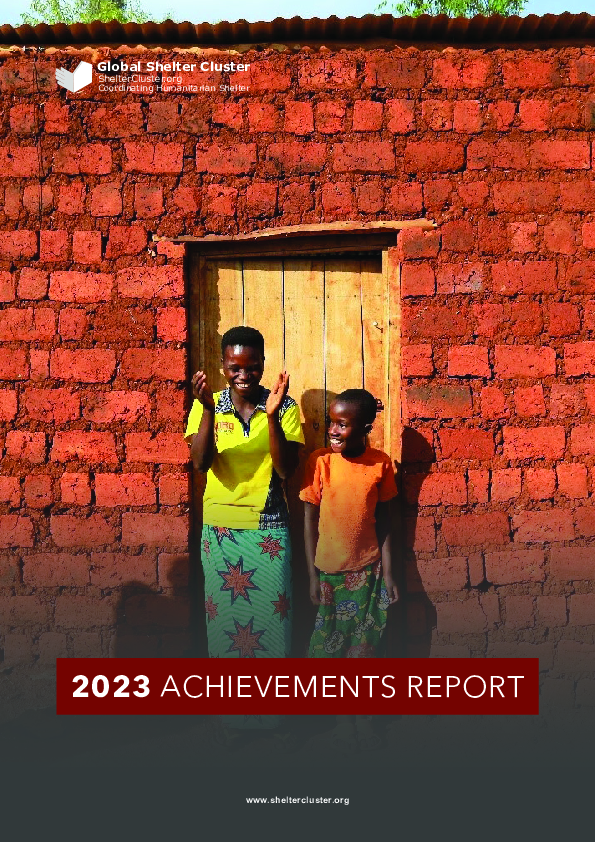Global Shelter Cluster
GSC-Achievements-Report-2023
More than 92 million people required shelter and NFI support in the 42 countries where clusters or cluster-like mechanisms were activated in 2023. in a year marked with multi humanitarian scale-ups, and despite the multi-faceted challenges, the Shelter Cluster partners managed to reach 20 million (22% of total in need) people with shelter and NFI assistance
The GSC provided country-level clusters with extensive support on coordination, information management, advocacy, and capacity-building, ensuring that cluster coordination team members were prepared to address ongoing and emerging challenges. The earthquake response in Türkiye and Syria was supported through a mission of the GSC Coordinator and the deployment of two roving coordinators (in person) and one information manager (remotely) shortly after the onset and during the first month of the crisis. The GSC also deployed a roving coordinator and information manager to Somalia while also providing long-term, remote support for information management. As per IASC humanitarian system wide scale-up activation protocol, the target to deploy appropriate coordination capacity within 72 hours, was met when the Shelter Cluster Haiti was formally activated in September 2023
In June, the GSC facilitated its annual Shelter Week, comprising of the GSC’s Coordination Workshop and Annual Meeting, bringing together over 120 participants from partner organizations and other stakeholders for sessions on recovery and durable solutions, reducing environmental impacts, and explored the wider impact of shelter, advancing the global knowledge within the sector. The GSC also conducted two rounds of its Humanitarian Shelter Coordination Training course in May and November for over 50 participants.
Supported by ECHO and USAID, the GSC and its partners also increased its efforts on “greening” the humanitarian shelter response by building evidence, developing, holding trainings, and conducting advocacy. Achievements were presented to the wider public through a well-attended webinar held in December.
Furthermore, the GSC rolled out its Shelter Severity Classification (SSC) system, providing a standard, simple, robust and transparent approach for shelter needs analysis and improvements in the Cluster Coordination Performance Management (CCPM) system allowed clusters to gather more detailed feedback from partners to continuously improve performance. The GSC also finalized a guidance on “Shelter Considerations for Minimum Expenditure Basket and Multi-Purpose Cash Assistance Program Design” and advanced efforts on GBV risk mitigation including through a webinar and actively engaging in the 16 Days Against GBV campaign in cooperation with the CCCM cluster. New training materials and guidance on Housing, Land, and Property rights and fire safety were developed through GSC focal points and partners and disseminated throughout the year. Global

